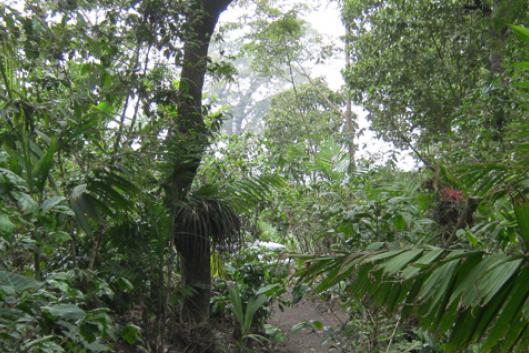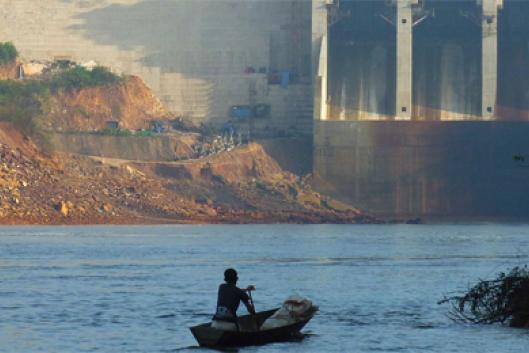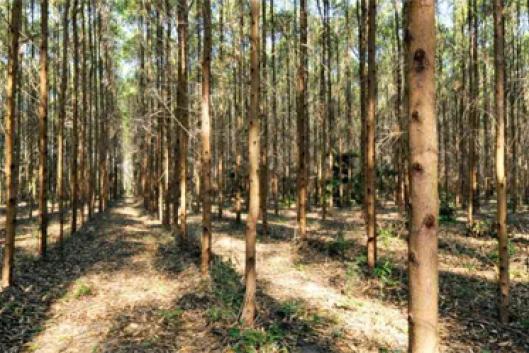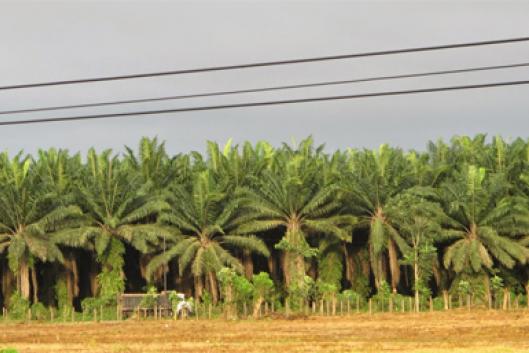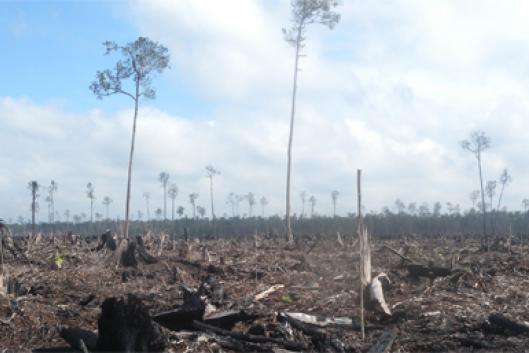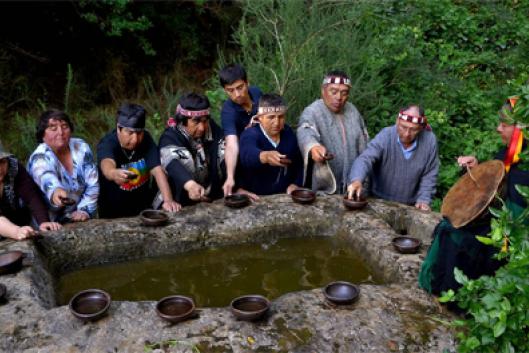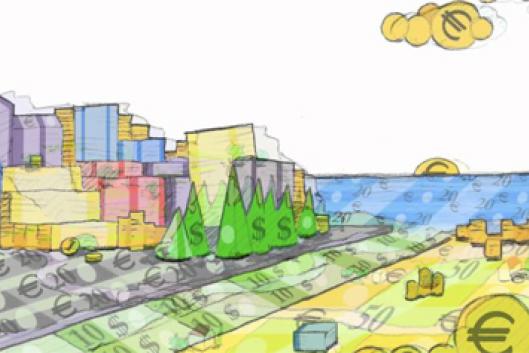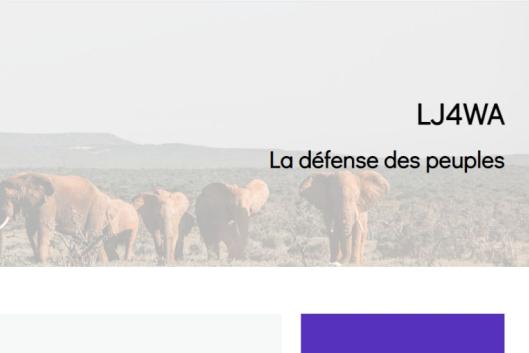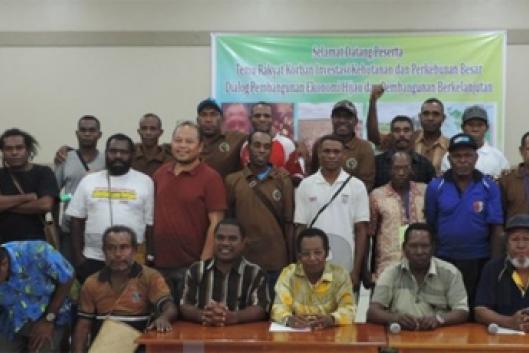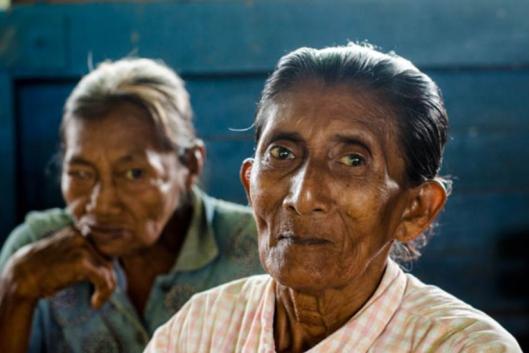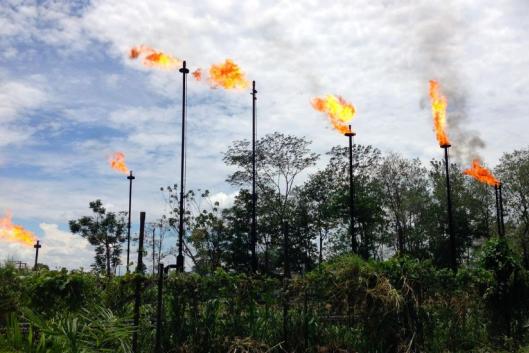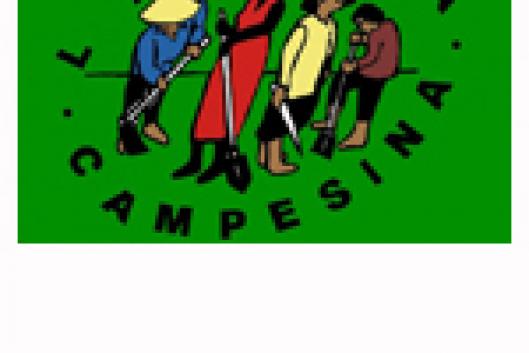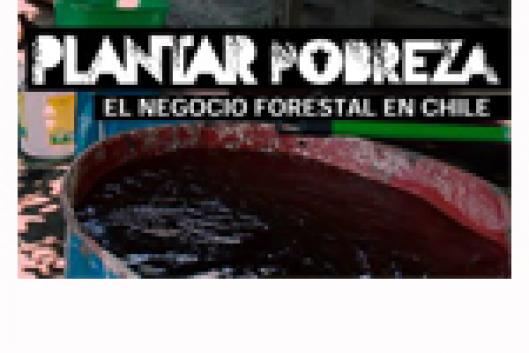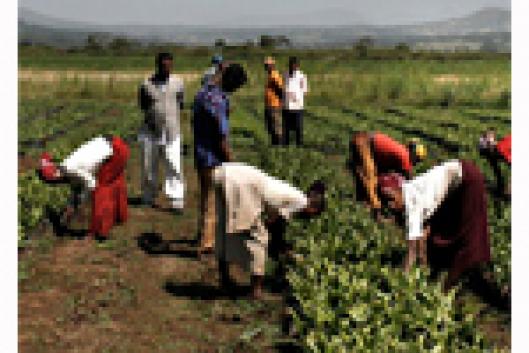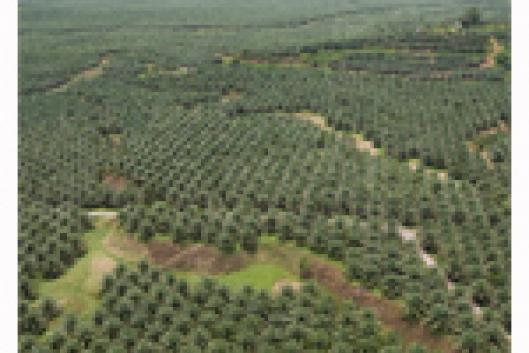When a new year begins, it is quite common for people to express their wishes and hopes for a better world. Here at WRM, we are wishing for a year in which forests begin to be preserved and the communities who depend on them can live freely within their territories, as one step towards a more just world. However, when we take a look around at the world we are living in today, it is clear that enormous challenges lie ahead. For example, what can we do to strengthen popular resistance and mobilization in order to stop the destruction of forests?
Bulletin Issue 210 – January 2015
The destruction of forests and territories in front of peoples’ resistances
WRM Bulletin
210
January 2015
OUR VIEWPOINT
THE DESTRUCTION OF FORESTS AND TERRITORIES IN FRONT OF PEOPLES’ RESISTANCES
-
6 March 2015On September 2014, fishing communities’ networks from Cambodia and Thailand met with great solidarity and commitment to share and voice the impacts related to large-scale hydroelectric power dams being built along the Mekong mainstream and its tributaries. They warned that the future of the Mekong River, the mother of all Southeast Asian rivers, and the livelihoods and cultures of the people that depend on it is under serious risks, as large-scale hydroelectric dams planned and being built rapidly progress (1).
-
23 February 2015In late 2013, the international organization Biofuelwatch, in conjunction with WRM and the Brazilian NGO CEPEDES, published a case study on the eucalyptus plantations of the Brazilian company “Suzano Papel e Celulose” in the northeastern Brazilian state of Maranhão for the export of wood pellets as a source of biomass energy (1). This article presents updated information on the context of this project, one of the first – not only in Brazil, but also in Latin America – to promote eucalyptus plantations specifically for biomass production. The European Union, in its search for energy alternatives to its high consumption of fossil fuels, will likely be the destination of Suzano’s wood pellets.
-
23 February 2015Several grassroots organizations in Guatemala released a statement criticizing the public consultation process of the corporate social responsibility principles and criteria of the Roundtable on Sustainable Palm Oil (RSPO). The signatories reported that they had joined together to consider, analyze and discuss the principles and criteria in order to contribute their opinion to the Public Consultation on the RSPO National Interpretation Document, which concluded on 7 December 2014. The statement declares:
-
23 February 2015One of Indonesia’s pulp and paper giants, Asia Pulp&Paper (APP), is planning to build a new pulp mill to supply not only pulp to paper companies within the APP Group, but also to have its own paper production. The destruction of the peat lands where several of the villages that would be affected by the construction and operations of such mill are located could result in floodings and the disruption of long-established agricultural systems. Moreover, the continuous expansion of industrial tree plantation concessions into South Sumatra’s peat lands is already leading to increased air pollution, fires and increased social negative impacts.
-
23 February 2015The companies Forestal Mininco y Forestal Arauco account for the vast majority of tree plantation activities in Chile, with almost two million hectares of monoculture plantations of exotic tree species, mainly pine and eucalyptus. Despite the resistance, denunciations and harsh criticisms on the part of numerous Mapuche Indigenous organizations and communities, both companies have been certified with the FSC label through foreign consulting firms.
-
PEOPLES IN ACTION
-
-
23 February 2015For centuries, the Rama people have lived on the Caribbean coast of Nicaragua. In June of 2013, the Nicaraguan government signed an exclusive contract with a Hong Kong based development company to build an immense canal across Nicaragua with a 100-year concession. The proposed route will cut through almost a million acres of rainforest and wetlands, and will displace hundreds of villages, including the Rama village of Bangkukuk. In violation of national law and international conventions, the Rama people were never consulted. On 22 December 2014, the construction work of the canal began. A video from “PreetyGoodProductions” highlights the voices of opposition and worrisome of the Rama people.
-
23 February 2015The Union for Those Affected by Texaco Operations (UDAPT) has been fighting for more than 20 years to force Chevron-Texaco to pay for the ravaging contamination it caused in the Ecuadorian Amazon and to take responsibility for their actions. The different initiatives launched by the UDAPT in different countries are on the verge of reaching their goal. To get there they need additional funding. UDAPT asks people to tweet the message: “RT! Crowdfunding for those affected by Chevron in Ecuador! Please join the cause and donate!” http://ow.ly/FZQTd @Chevron_Toxico.
RECOMMENDED
-
6 March 2015The coordinating team of La Via Campesina in the state of Pará, Brazil, has compiled in a book the political struggles waged over time in the Amazon and the initiatives organized. In addition to a systematized introduction with a focus on ideas about peasant communities and their reincorporation in debates of historical concepts, there is a duel of perspectives with environmental ecological imperialism. These formulations are not merely relevant to the current situation, but form part of the challenges facing the working class in the Amazon region. Over the past decade, all of the possibilities of the neo-developmentalist front have been implemented in the Amazon.
-
6 March 2015The recently released book “Money Logging” documents the local politics, international complicity and dedicated resistance in the struggle against the turning of Sarawak's rainforests into a monoculture of oil palms and hydropower reservoirs. Author Lukas Straumann singles out Abdul Taib Mahmud, former governor of the Malaysian state of Sarawak, as the kingpin of this Asian timber mafia, while he shows that Taib’s family—with the complicity of global financial institutions—have profited to the tune of US$15 billion. Moreover, a series of 12 large-scale dams, two of which have already been built, would inundate 1,600 square kilometres of rainforest and displace 235 indigenous communities.
-
6 March 2015This documentary produced by “Periódico Resumen” addresses the origins and consequences of the expansion of the tree plantation industry in central-southern Chile. Plantations have been expanding in Chile at a phenomenal rate and now occupy a total of some three million hectares, seriously affecting not only the environment but also local communities. The droughts generated by monoculture plantations have also been provoking forest fires. Many communities have now been able to disassociate themselves from the plantation companies and implement local management and use of the forests.
-
6 March 2015Booming global demand for palm oil and limited room for the industry’s expansion in Asia have led large palm oil producers to look towards Africa. Companies are also betting on an explosion in demand from the European Union for palm oil as a ‘sustainable’ fuel, and Africa is the closest palm oil-producing region. Swaths of land have been allocated to foreign companies for oil palm plantations. Plantations are causing large-scale deforestation and affecting the water supplies, which are also being contaminated by pesticides used on the plantations. By transferring lands to the exclusive propagation of oil palm, people are losing the ability to grow food for themselves.
-
6 March 2015Oil palm plantations in Palawan, as elsewhere in the Philippines, are portrayed as a key solution to lower greenhouse gas emissions and as a tool for poverty eradication. However, reality shows a different picture. A report from “Ancestral Land/Domain Watch” (ALDAW) explains the many reasons why oil palm development should be stopped. Among others, this monoculture takes over cropland and coconut groves which sustain local self-sufficiency. It also meant the clearing of significant areas of old and secondary forests which are used by local inhabitants for the collection of non-timber forest products.
-
4 March 2015What is nature worth? How much profit can it report? At a time when biodiversity is critically threatened, this documentary reveals how banks and private investors are increasingly converting natural resources into objects of financial speculation. “Nature, le nouvel eldorado de la finance” (“Banking Nature”) shines a spotlight on the mechanisms of a nascent system that could end up as a manifestation of global hypocrisy. Through interviews with financiers, economic experts and academics, the film contrasts opposing points of view and presents numerous concrete examples of communities and natural environments threatened by these new practices.
